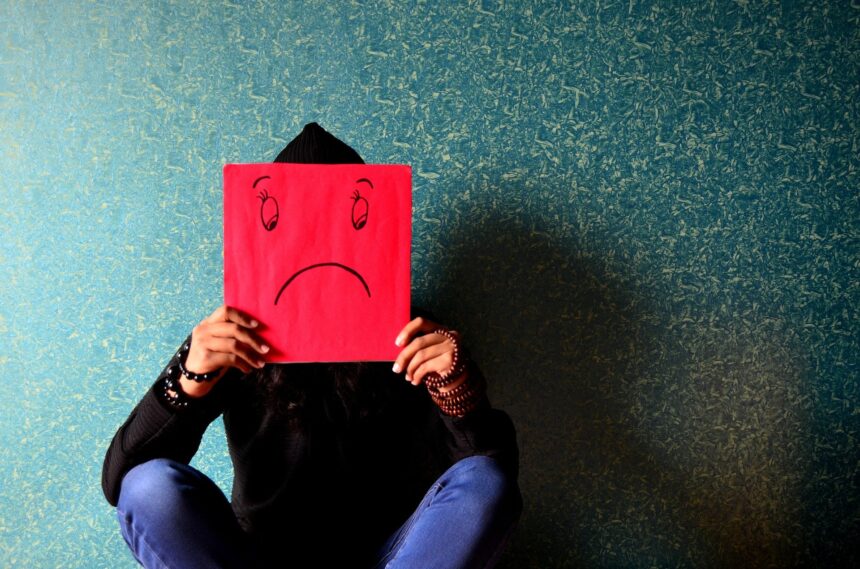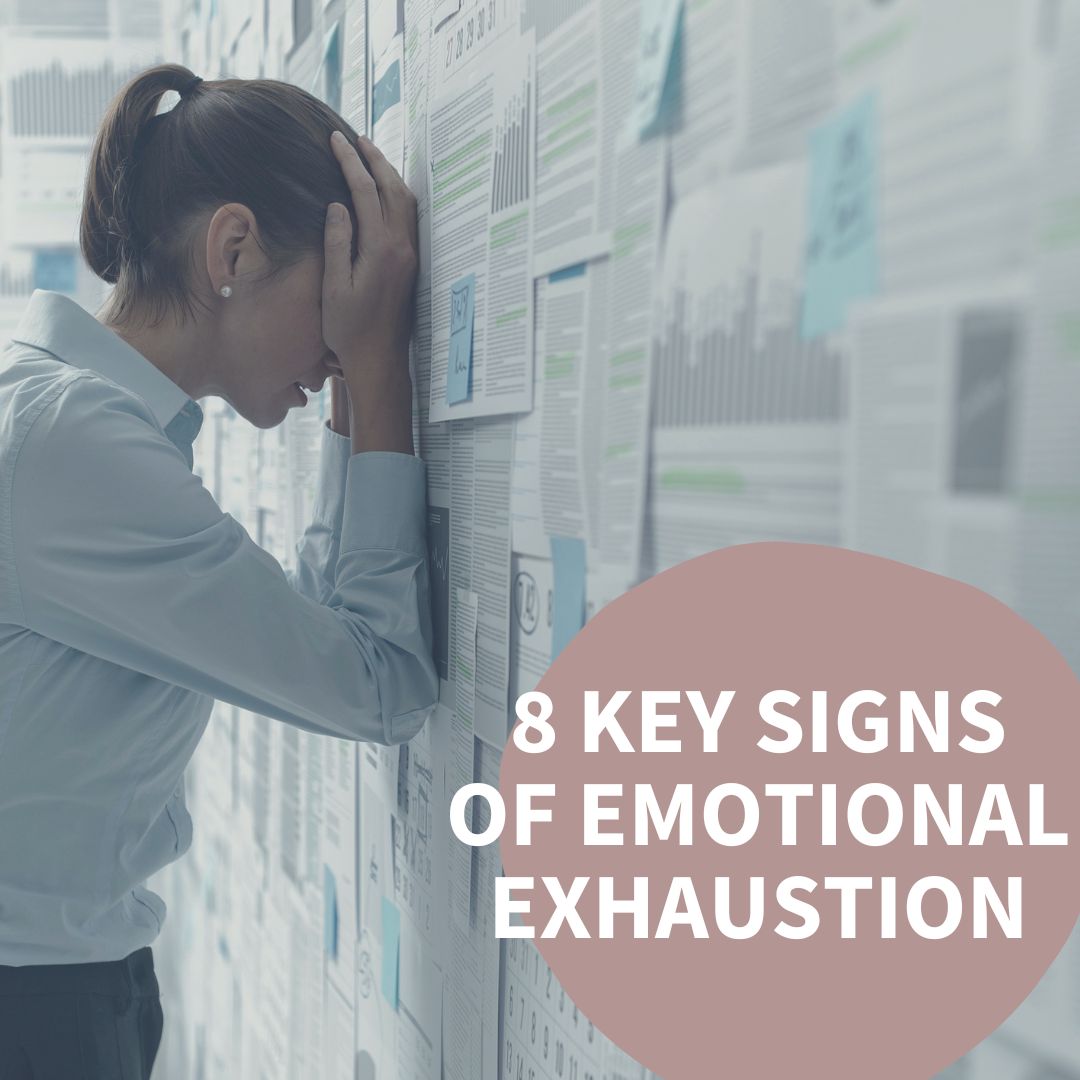What is emotional exhaustion?
Exhaustion is feeling completely worn out all the time. It might seem like a lack of sleep is the cause, but even if you rest, you still can feel drained. This is because you’re not only tired in your body, but also in your mind and feelings. What is this called? Emotional exhaustion.
Emotional exhaustion is the result of stress, most often from different sources. It can be due to your job, home life, or both, but quite often it’s a symptom of a much bigger issue known as burn out. Emotional exhaustion can feel like you have little to no control over your own life. You feel trapped and even smothered by wave after wave of everyday problems. Emotional exhaustion makes it so the smallest things can trigger the biggest meltdown.
What’s worse? Emotional exhaustion is a cycle. Burnout creates an overwhelming feeling that leads to a lack of motivation. This lack of motivation makes it hard to get even the most basic things done like eating and sleeping. If we don’t keep up on these basic functions it can cause serious damage to our bodies and minds. This damage only perpetuates the cycle of emotional burnout.

Eight Key Signs of Emotional Exhaustion
1. Endless Fatigue
Fatigue isn’t as simple as feeling tired. You can feel tired after a day at work or a late night, but it often goes away with some rest. But fatigue never goes away, no matter how much sleep we get or coffee we drink. You could sleep for twenty hours and still wake up feeling the same level of exhaustion. Fatigue can even make us feel like we’re carrying a weight on our shoulders.
Sometimes fatigue can be thought of the same thing as depression. While they have similar symptoms, depression and fatigue are two different things caused in different ways. If you are feeling fatigued, something you can try is taking a 15 minute power-nap with your feet above your head. This might sound strange but, it will help circulate blood throughout your body. You can put your feet on the armrest of a couch or lay on the floor and put something under your feet.
2. You find yourself unable to sleep, or remain asleep
Do you get out of bed in the morning wishing the day would be over so you could get back in? Once bedtime comes, do you dread the hours of lying awake trying to sleep? This cycle leads to hardly any sleep which then affects your entire life. Medication can be a temporary solution, but it never can fix the root of the problem.
A sign of emotional exhaustion is that you are getting less than 6 hours of sleep each night. Usually it is thoughts that keep you awake. This lack of sleep can be the starting point for the cycle of burnout as it affects all aspects of your life. If your mind doesn’t have enough time to rest, it makes it harder to process your emotions.
3. You might cry for no clear reason
When you’re emotionally exhausted your emotions will start to swing. Because your mind is so fatigued, it will compensate by creating dramatic emotions. For a lot of us, this comes in the form of “surprise tears”. I use the word “surprise” because they come out of nowhere. It is important to remember when this happens that it is normal! There is no need to feel ashamed about crying. In fact, the thought of feeling bad for crying will make it worse.
Depending on where you are try to take a minute by yourself and breathe. Get the tears out if they need to be out. Try your best to avoid sobbing and just breathe. As you regulate your heart rate you get oxygen to your lungs you will settle back down.
4. Detachment
Apathy. Empty. Void. There are so many words to describe detachment and yet nothing comes close to how it actually feels. Like mentioned above your emotions will swing. You might surprise cry one moment and then lack any emotion in another. Again, your mind is trying to compensate because it’s exhausted.
If you feel like you aren’t able to engage with others, it is a sign of emotional exhaustion. Try to recognize when you aren’t feeling emotions and should be. It is easier said than done but if you focus on what you feel like you should be feeling, you can make progress.
5. Physical illness and symptoms of emotional exhaustion
If you find that you get sick more often than usual you may be emotionally exhausted. Your body and mind are so tired that while trying to rest and recover it is unable to defend itself from illness. A few common things are gut issues, heart palpitations, headaches, joint pain, dizziness, and skin irritations.
Some of these symptoms could also be your body’s way of asking you to slow down. It is important to focus on the basics if you’re experiencing emotional exhaustion. Eat healthy, exercise, try your best to sleep. Again, easier said than done, but these things can make a difference in getting yourself emotions back on track.
6. Easily irritated and quick to anger
The smallest thing will either make you cry or irritate you to the point of anger. It’s at this point that your wick has been burnt too far and you feel like you’re about to explode! Unfortunately when we reach the stage of irritation it’s often the ones we love that suffer the most.
It is important to recognize (even after an outburst) that you can’t completely control your emotions. Communicate this to your loved ones. Explain what you are experiencing, let them in so they can support you. It may seem silly but if you make an effort to get help from those around you it can be a major jump-start for yourself.
7. Lack of motivation
It’s your day off work and all you want to do is sleep. You can’t even motivate yourself to lift a book, a pen or the latest video game. Calling a friend? Forget about it. I’ll do it tomorrow. Except you won’t because you can’t bring yourself to do it. It’s easier to stay in bed or on the couch and ignore the world until you have to get up.
Losing motivation as talked about above, can affect other aspects of your life. In one day you can lose all the momentum you have towards your goals. It’s ok to have an off day! What’s important is making sure that one day doesn’t turn into a week. Emotional exhaustion is a cycle after all, so the longer you go, the harder it will be to get back on track.
8. Feeling anxious or on edge
Do you ever feel like there is something you should be doing but can’t remember what it is? This feeling of anxiety and stress is a sign that you are experiencing emotional exhaustion. As your mind processes emotions it might start working overtime to give you signals. This signal from your body is that it needs some recovery.
When you start to feel this anxiety try to take a moment to compartmentalize your mind. Thing about what you need to get done from a very high level all the way down to your next two minutes. The purpose of this exercise is not to stress you out with all that is on your plate but rather to reset your mind. By grounding yourself in this way you can combat some of the effects of emotional exhaustion.

Now What
The most common symptoms of emotional exhaustion are:
- Fatigue
- Trouble sleeping
- Emotional swings
- Detachment
- Physical illness
- Irritation
- Lack of motivation
Many of these symptoms are related and happen in a cycle. Emotional exhaustion is a downward spiral that can put your life in a tail spin. It is important to try some of the suggestions mentioned above to stop the downward momentum.
In conclusion, emotional exhaustion is a serious issue in today’s fast-paced society. Understanding the causes and symptoms can help us:
- Recognize when we are experiencing emotional exhaustion
- Take steps to manage it. Steps such as: self-care activities, seeking support, and realizing our emotional needs.
By doing these things, we can prevent and overcome emotional exhaustion. In doing so we will lead a happier, healthier life. Remember, it’s okay to take a break and ask for help when needed. Your mental and emotional well-being is just as important as your physical health.
We always recommend talking to someone about what you are going through. Whether that is a loved one or a licensed professional, another person’s support is one of the best cures for emotional exhaustion. It is also important to be a person that others can talk to about what they are going through. There are many online services that you can use to talk to a professional.
Don’t lose hope! Our emotional well-being swings throughout life. It is normal to experience emotional exhaustion. If you are going through these symptoms, remember there are things you can do to help yourself even if it seems like your situation is helpless.

